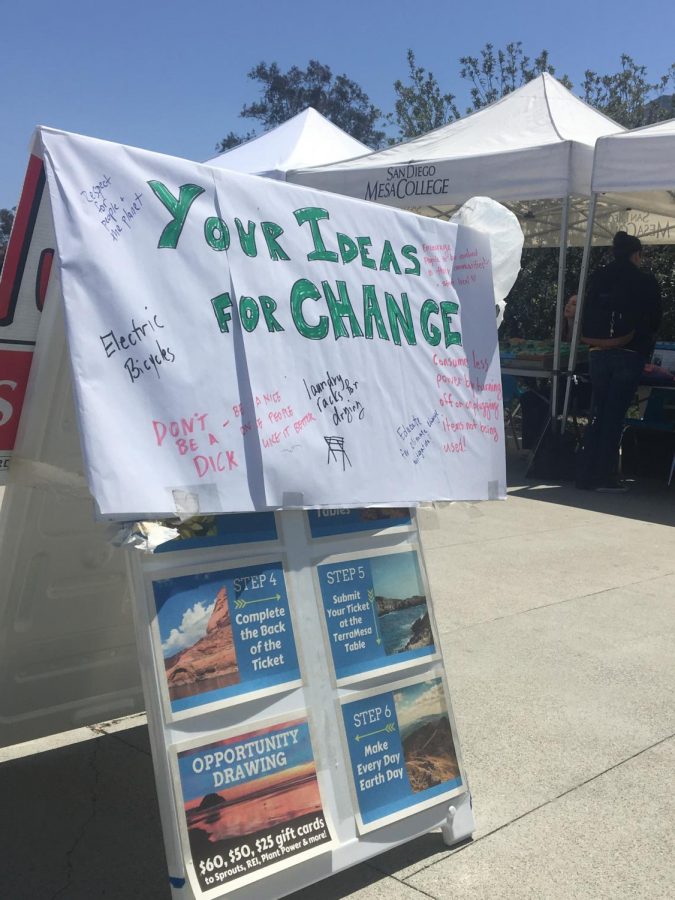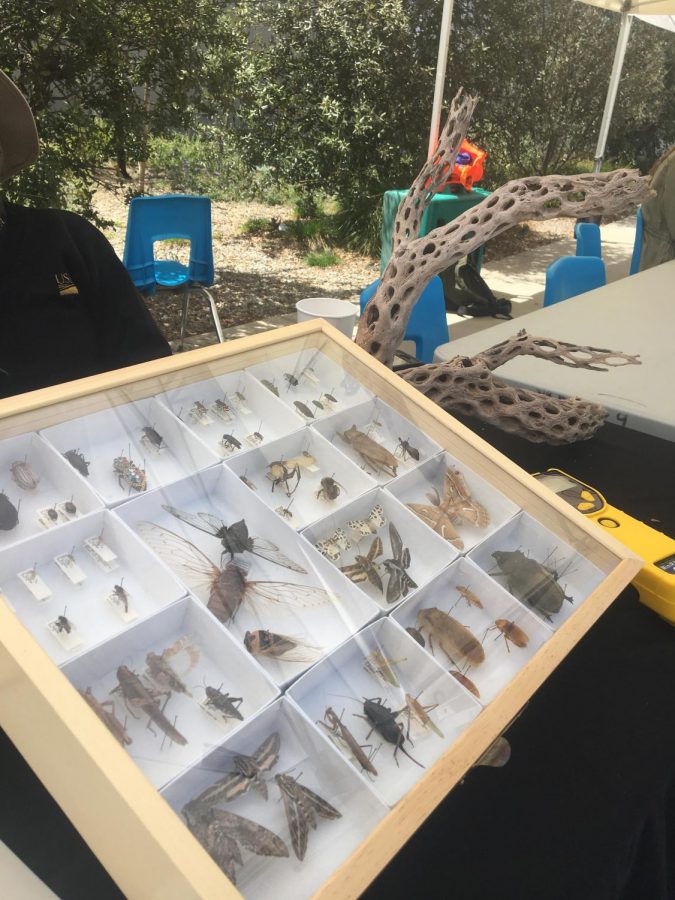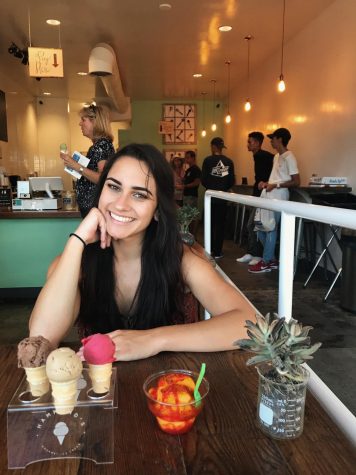San Diego Mesa College united together on April 18 to celebrate the national holiday of Earth Day with local organizations and clubs at Sunrise Plaza spreading awareness and starting conversations with students.
Earth Day is celebrated in a variety of ways but its largest focus is about sustainability and banding people together to help better this planet. From food banks to gardening to animal preservation, the community was brought together for learning and appreciation of Earth.
Plant Protection Quarantine Officer Stephanie Dinh explained that the U.S. Department of Agriculture helps to protects plants and species in the states from invasive and potentially harmful ones that come through borders. Dinh and her partner, Leah Cunningham, keep our agriculture safe by managing identifiers at borders from possible harmful species and to inform the public on what the effects can be.
Dinh said, “We need your cooperation and to contact us about anything because starting a conversation is how you’ll end up learning something.”
Sierra Reiss with the Resource Conservation District of San Diego interns to teach young children about our six major waste products and how they affect the environment. There is a lot of improper waste disposal going on locally and globally so it’s crucial to educate people at a young age so they can change the future. “Working with the young kids is so amazing because even though they don’t exactly know everything you’re teaching, they know they want to help and stop whatever bad is going on,” Reiss stated, “that in itself will help sustain our earth.”
Animal preservation groups like Sea Shepherd and San Diego Audubon Society had booths to welcome students to learn more about endangered species and illegal poaching going on in our community and around the world. Kym Prince, assistant coordinator, of Sea Shepherd explained the dangers of fighting back against whaling fleets and the importance of protecting the marine animals who can’t protect themselves. The organization was also the basis for hit TV show “Whale Wars”. Young Conservation Team Leader, Sammy Flohr, representing the Audubon Society advocates for the importance of species protection and the Re-wild Mission Bay project to maintain endangered species here in our community.
Flohr explained, “Students can get involved by helping with plant management when they’re on trails and anywhere out in nature, commit to invasive plant removal and spread advocacy and awareness to others.”
Pushing to lessen the food gap and end hunger in San Diego was Kevin Mielnik with Food Bank San Diego and Kristen Cruz with Feeding San Diego. Food Bank is partnered with over 400 agencies to make the food bank available where anyone from all walks of life can receive 30-50 pounds of food with no questions asked. Feeding San Diego fills the mouths of over 63,000 people a week with the help of 16,000 volunteers to make it happen. Cruz said people can get involved by going online and signing up for shifts to help clean and package food, distribute and learn about the organization.
Mesa College’s own The Stand here on campus held a table to remind students they are open to offer help for those who are food insecure and resources to provide accessibility for the future like clothes for job interviews, how to shop in bulk and how to manage financially.
Terra Mesa and Mesa Hacks are campus clubs where you can garden and compost with your peers or join the Hackathon to combine the knowledge of computer science and biology to create a sustainability project. Terra Mesa member, Sherife Istrefi, announced the club works closely with the cafeteria to gather food scraps to out into their compost pile with efficiently reducing waste. Istrefi persuades students to garden because “there’s something about planting your food and watching it grow because it doesn’t taste like what you buy at the store.”
The President of the Computer Science club Preston Reed urges students to participate in the Hackathon as they join forces with STEM majors with the help of professors and mentors to work in an over 12-hour-long event to create a sustainability project on June 1.
Students bustled through the plaza going from table to table connecting with their community and expanding their minds about Earth day and how they can help sustain a healthier planet.



